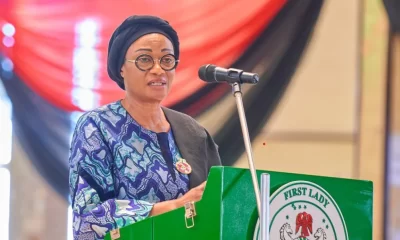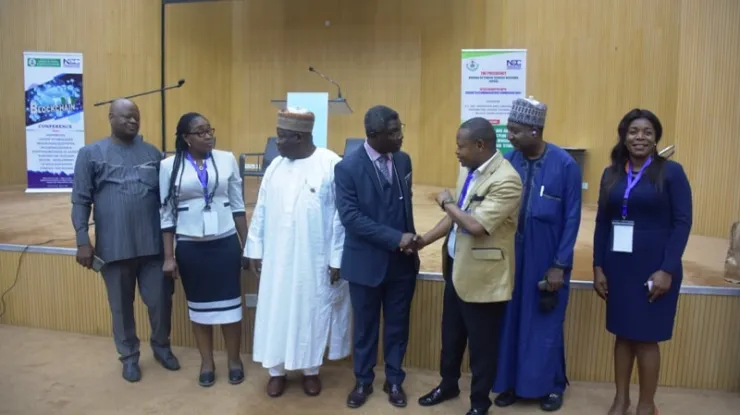The Nigerian Communications Commission (NCC) says existing national digital economy frameworks support blockchain technology, noting that it can be a bedrock of economic innovation and growth in the country through effective implementation of policies.
This was the position of the commission at a two-day workshop organised by the NCC, which was held recently in Abuja, with the theme ‘Distributed Ledger Technology (Blockchain) Ecosystem, Decentralisation and Adoption Methods’.
Haru Al-Hassan, NCC’s director of new media and information security, who spoke on behalf of Umar Danbatta, NCC executive vice-chairman, said the National Digital Economy Policy and Strategy (NDEPS), 2020-2030, instituted by the federal government as well as regulatory initiatives by the commission have been significant enablers of blockchain and emerging technologies in the country.
“Good regulatory policies are the bedrock of innovation and growth and it is the aspiration of the commission that distributed ledger technologies (DLTs) otherwise known as blockchain and other innovative technologies and services would continue to thrive and contribute to the growth and development of Nigeria,” Al-Hassan said.
On his part, Dasuki Arabi, Director-General of the Bureau of Public Service Reforms (BPSR), said blockchain would be central in the implementation of the national e-government masterplan.
READ ALSO: NCC target more foreign investors as telecom firms seek more support
He said the federal government was already making efforts, through a number of initiatives, to harmonise emerging technologies with the contemporary public service sector in a way that strengthens the efficiency of the public sector.
He listed the treasury single account (TSA), the integrated payroll and personnel information system (IPPIS), and the bank verification number (BVN) as examples of the utilisation of technology in the public sector.
Arabi added that Nigeria ranks third in Africa in the use of telecommunications for public service delivery — after South Africa and Egypt — and called on policymakers to ensure robust policy formulation that ensures improved digital literacy and increased automation in public service delivery.
Other speakers at the event included Abdul-Kareem Oloyede of the University of Ilorin, Kwara state; Amaka Ukwueze and Vivian Okonkwo, both of the University of Nigeria, Nsukka (UNN), Enugu state, and Romi Legha of the Indian High Commission.
Oloyede, who clarified the difference between blockchain and bitcoin, said the former is the underlying technology used for bitcoin and other cryptocurrencies.
He also noted that blockchain could be utilised to minimise expenditure and expenses, speed up transactions, and improve data security for financial institutions, health care, and businesses.
Ukwueze applauded the commission for taking the lead in discussions on DLTs, considering the fact that Nigeria does not have a clear-cut blockchain policy yet, even though countries worldwide had begun integrating DLT as a central part of their business practices.
The event drew participants from financial institutions, ministries, departments, and agencies (MDAs), the academia, the Nigerian military, and paramilitary forces, the Nigerian cyberwarfare command, and the private sector.

 Entertainment7 days ago
Entertainment7 days ago
 Entertainment4 days ago
Entertainment4 days ago
 Comments and Issues6 days ago
Comments and Issues6 days ago
 Business7 days ago
Business7 days ago
 Comments and Issues6 days ago
Comments and Issues6 days ago
 Health1 week ago
Health1 week ago
 Health5 days ago
Health5 days ago
 Editorial Opinion1 week ago
Editorial Opinion1 week ago

